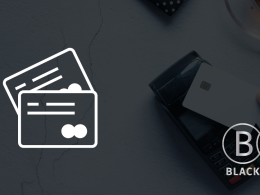- The average Brit owes £3,845 in debt
- Millennials are the generation most likely to be in debt, as 69% admit to owing money
- Gen Z and Millennials most likely to associate debt with shame (34%)
- Anita Naik, Savings Expert, provides her tips on managing debt
With National Debt Awareness week upon us (20 – 26 March), new research reveals that half (50%) of Brits are currently in debt.
The Cost-of-living Credit Crunch Report 2023 , by VoucherCodes.co.uk, the UK’s most trusted savings site, examines the Britain’s relationship with debt in the midst of rising living costs, revealing that the average Brit has £3,845 in debt – excluding mortgages.
Breaking this down by gender, it’s men who owe the highest amount of money, with the average man having £4,278 in debt – 24% more than the £3,438 owed by the average woman.
When looking at the differing generations, it’s Millennials, those aged 27-42 years old, who are most likely to be in debt as over two thirds (69%) admit they owe money, totalling £4,285 per person.
Gen Z (18-26) and Gen X (43-58) follow closely behind with 62% of both age groups stating they owe money, at an average amount of £3,916 and £4,644 respectively.
Average debt amount broken down by age group
| Rank | Age Group | Average debt amount (£) | Percentage of age group in debt (%) |
| 1 | 18-26 | £3,916 | 62% |
| 2 | 27-42 | £4,285 | 69% |
| 3 | 43-58 | £4,644 | 62% |
| 4 | 59-68 | £2,450 | 45% |
| 5 | 69-77 | £2,408 | 40% |
| 6 | 78-95 | £832 | 28% |
For almost half of the population, the thought of being in debt makes them feel worried (45%) and nearly three in 10 (28%) do or would feel ashamed for owing money. Concerningly, the youngest generations, Gen Z and Millennials who feel the most shame towards debt with feelings of shame as over a third (34%) of both age groups admit they would be too embarrassed to tell their friends and family about the money they owe.
Anita Naik, Savings Expert at VoucherCodes.co.uk comments: “Our research shows that debt impacts half of the population and with the ongoing cost-of-living crisis, we’re aware that understanding and managing debt has not only become harder than ever, but many are now borrowing money to meet every day financial demands.
“Despite debt impacting such a large proportion of Brits, it can still be a daunting topic to bring up, with many feeling too ashamed to share their situation with the people around them. Debt Awareness Week is designed to encourage people to start talking and seek the advice they need.”
To assist with managing debt, VoucherCodes.co.uk offers the following tips:
- Understand how much you owe
- Before you begin taking steps to clear any debt accrued, it’s important to have a clear understanding of how much money you owe. It’s recommended you start by making a list of all your debts and when payments are due, allowing you to see the bigger picture and plan effectively.
- Make the most of minimum payments
- Many debts, such as credit card debt will come with minimum payment options. These are small payments towards your total borrowed amount which help to minimise or avoid late payment fees. Although this won’t make a large dent in the total amount you owe, avoiding late payments fees is a small step towards saving money in the long run.
- Work out what you can realistically afford to pay
- It can be easy to assume that the faster you pay off your debts the better, however, if you are paying off more debt monthly than you can afford, you run the risk of creating more debt for yourself if you then need help paying for everyday costs.
- Prioritise high interest debt
- If you hold a few different debts, it can feel daunting to know which one to pay off first. Not all debt is equal, so it’s best to prioritise your debts by the highest interest rates. Overtime, any money owed with a high interest rate will keep increases the longer it sits unpaid.
“Debt advice is not a one size fits all solution and what is best for you will be dependent on your personal circumstances. Speaking to an impartial debt advisor can help you become debt free sooner as they will suggest ways of dealing with your debt that you may not already know about.
“Before making any decisions, it’s important to get free debt advice from credible services such as Step Change, who will talk you through your options.”
For more information, visit VoucherCodes.co.uk.









